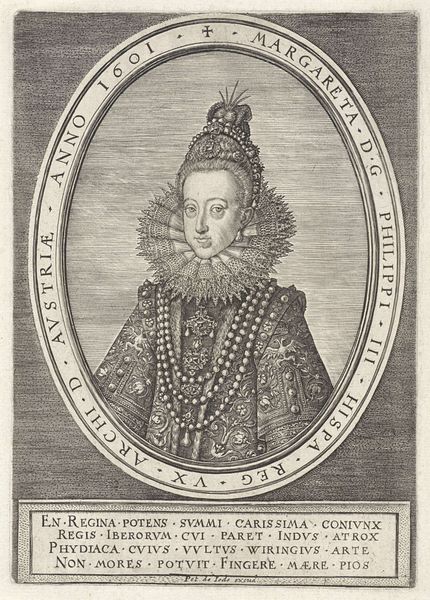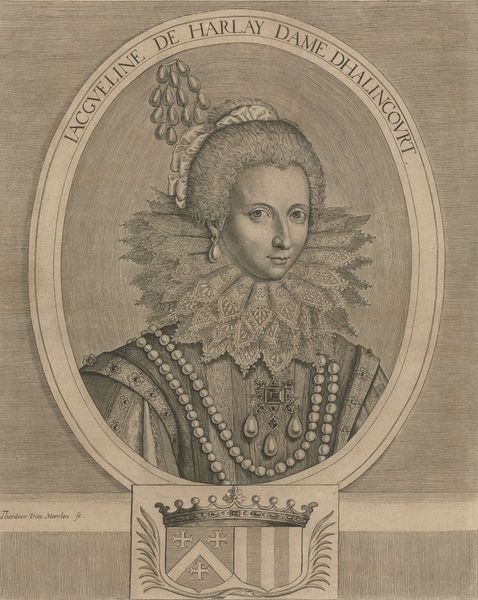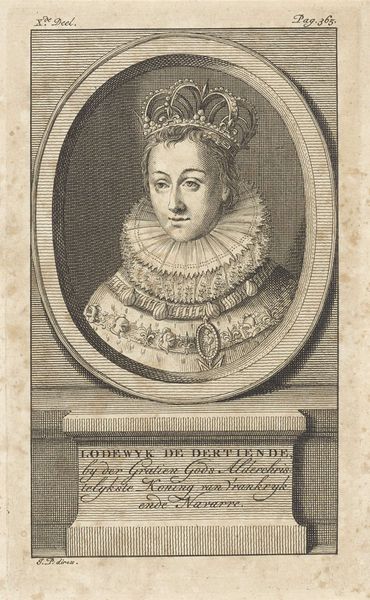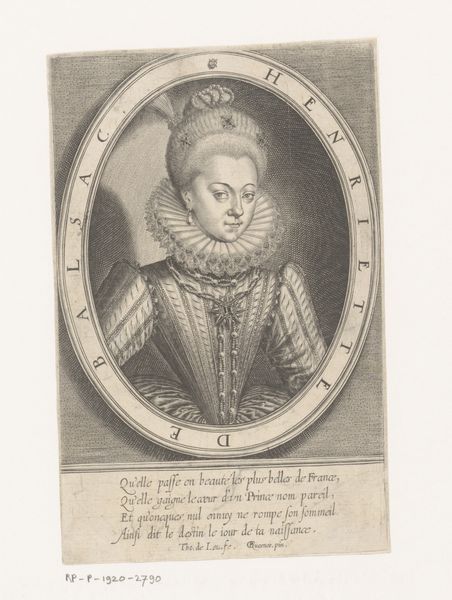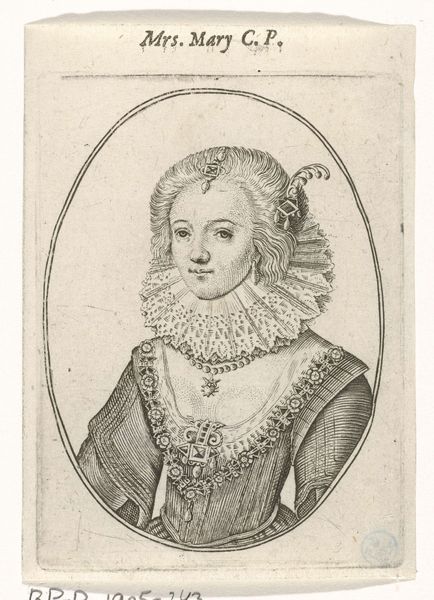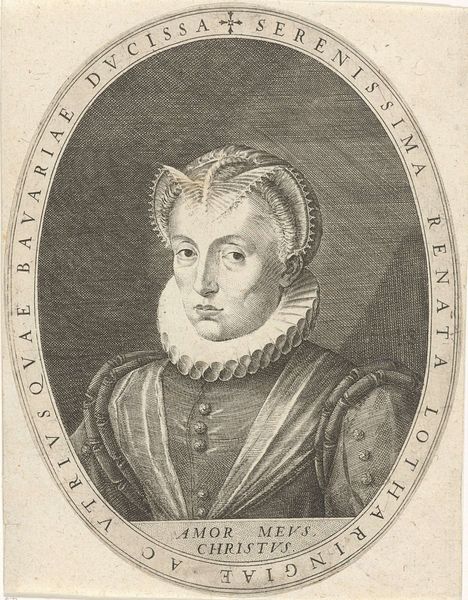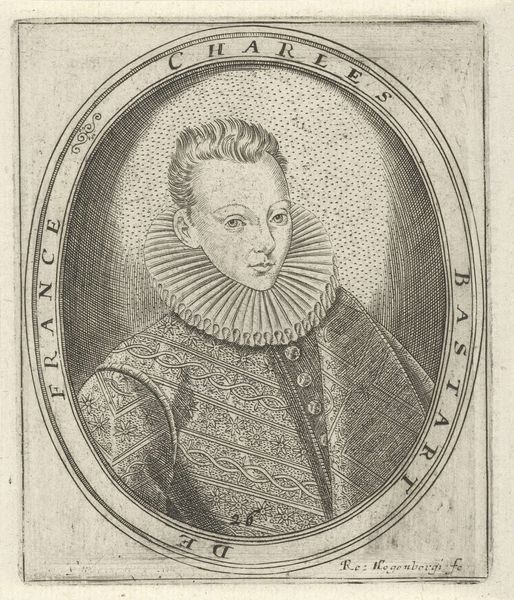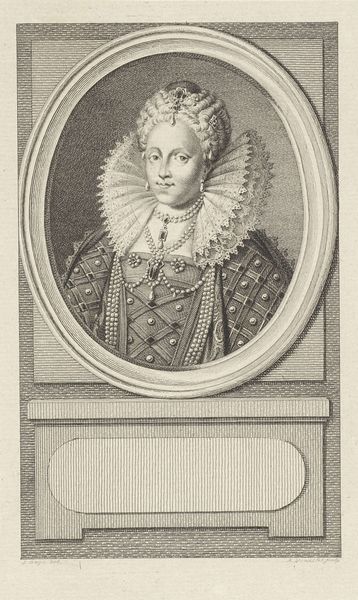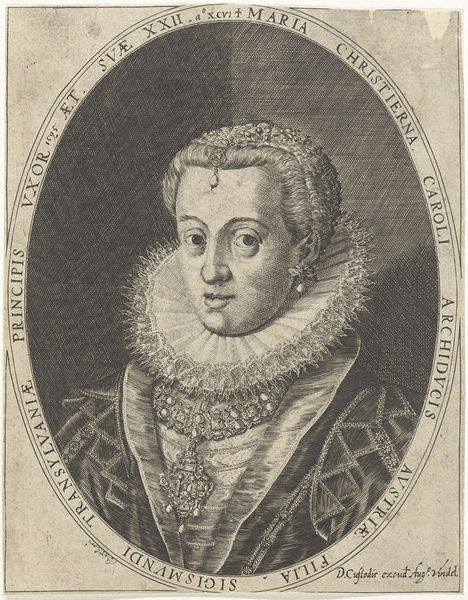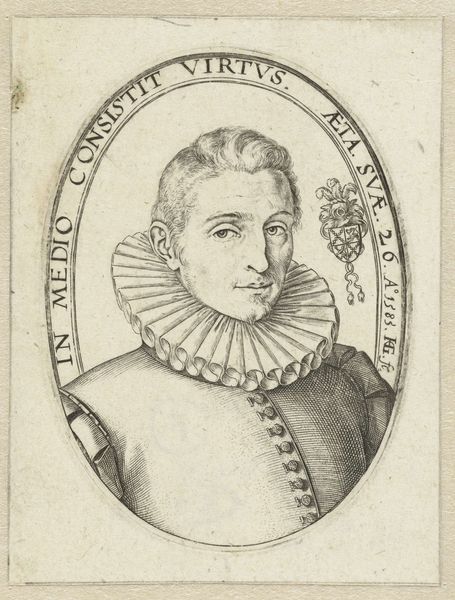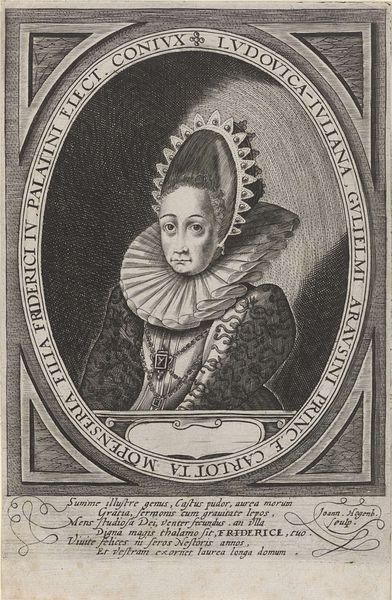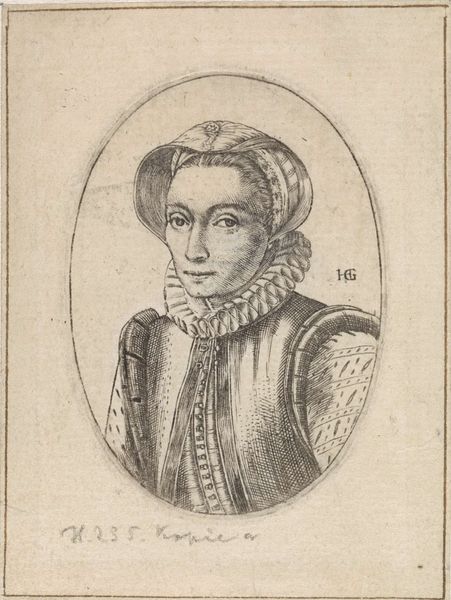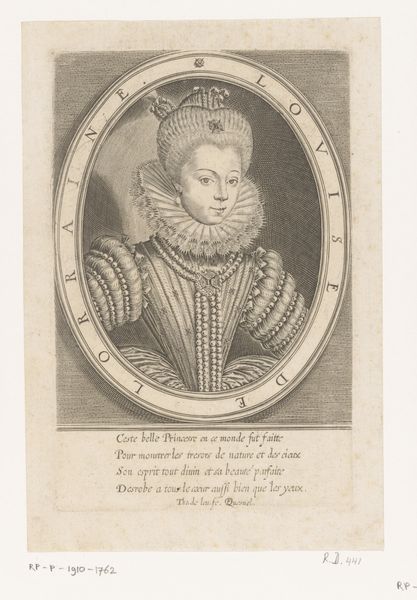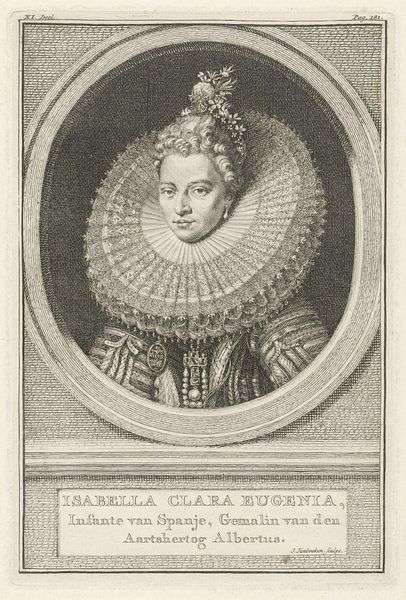
Dimensions: height 171 mm, width 106 mm
Copyright: Rijks Museum: Open Domain
This print of Isabella Clara Eugenia was made by Jan Punt in the 1700s, using etching and engraving. The image is made by cutting lines into a metal plate, which is then inked and pressed onto paper. Look closely, and you can see how the varying depths and densities of the lines create tone and texture, from the delicate lace collar to the sheen on her dress. Printmaking like this was a key technology in the early modern period. It allowed images and information to be reproduced and disseminated widely. Punt was a specialist in this, working within a highly developed economic system, creating images of important people that could then be consumed by a growing public. So, while this may look like a straightforward portrait, it's also a product of its time, reflecting the rise of mass media and the commodification of images. It reminds us that even seemingly simple artworks are embedded in complex social and economic contexts.
Comments
No comments
Be the first to comment and join the conversation on the ultimate creative platform.
